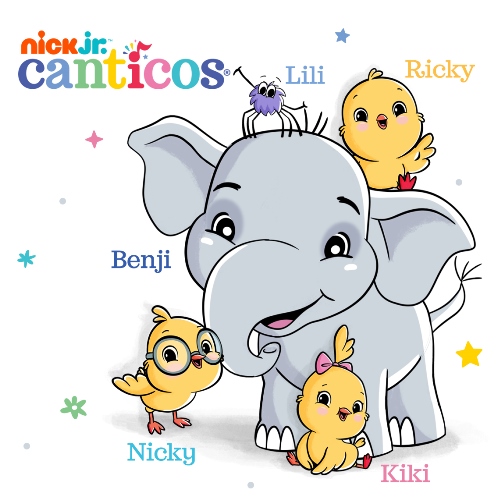SLJ Reviews the First Two Volumes of “Canticos” Digital Shorts
SLJ reviews the two seasons of the bilingual “Cantícos” digital shorts, based on Susie Jaramillo’s board books featuring traditional Latin American nursery rhymes, now available on NickJr.com and the NOGGIN app.

The first volume of the bilingual “Canticos” digital shorts, based on Susie Jaramillo’s board books (Encantos Media), were released free on NickJr.com and via the NOGGIN app (Android/iOS compatible) in May 2018. The second set of short-form videos were released this week. These animated adaptations bring a group of winsome animal protagonists with chubby baby faces, bouncy personalities, and loving relationships to the preschool audience. Each set is comprised of five story-song episodes lasting less than three minutes apiece. These traditional Latin American nursery rhymes are presented in both English and Spanish. Viewers can access the shorts in their language preference.
Each melody begins with a brief bilingual introduction, followed by a song in the selected language, a transition, a repetition of the song in the second language, and a closing refrain in the primary language (e.g., “Canticos: ¡pon una canción en tú corazón!” or "Canticos: Put a little song in your heart!"). Of note is the careful attention to the authenticity of each transition, with its use of code-switching. For example, in the version that begins primarily in Spanish, the transition plays as follows: “¡Otra vez!” a group of children’s voices shout as the nursery rhyme concludes. “Again?” an adult female asks in English, and, after a short pause, the children respond “In English!” The English translation ensues.
The attention to linguistic detail not only makes for an authentic, childlike response to the ending of a read- and sing-aloud tale, but also signals a shift in language use, which is highlighted in the fluent, bilingual abilities of the child and adult vocalists.
The first “Canticos” season introduces the series protagonists, starting off with sibling chickies Ricky, Nicky, and Kiki who keep mother hen very busy in “Los Pollitos/Little Chickies.” Other characters are Lili, an artistic spider whose webs take the shape of papel picado, together with her unlikely friend Benji the elephant. In the traditional Mexican “Elefantitos/Little Elephants,” Lili’s web is able to hold the weight of Benji and his friends, that is, until she takes matters into her own hands when their antics become too much for her. Some of the other songs in this volume include “La Araña Chiquitita (La Arañita)/Itsy Bitsy Spider”; “El Barquito Chiquitito/Little Teeny Tiny Boat”; and “Sol Solecito/Little Sunny Sunshine.” Important preschool concepts are woven into these songs, such as counting, opposites, and days of the week.

The second set of videos, releasing this week, features the same lovable cast, while also presenting two dolls, one of which comes to life even though he is made of cardboard—a favorite in Latin America, “Pin Pon.” A bunny plays the starring role when the entire neighborhood shows up at his house to sing birthday songs, including “Feliz Cupleaños,” “Las Mañanitas” (traditionally sung in Mexico), and “Happy Birthday.” A mariachi band and a rooster crowing “Ay! Ay! Ay!” are featured. The well-known “Twinkle Twinkle Little Star/Estrellita” also makes an appearance, in addition to “Little Dolly/La Muñequita and “Sleep Little Baby/Duérmete Pollito.” Some of the early learning concepts introduced are addition, daytime/nighttime, and today/tomorrow. Unlike the first volume, the lyrics are highlighted as each word is sung.
VERDICT These digital animated shorts do more than simply celebrate diversity and inclusion. They represent the joyful reality of many families living in the United States and in Spanish-speaking countries, namely, that biliteracy and bilingualism are normal and valuable abilities. As such, they make for a perfect addition for digital and bilingual storytimes. Librarians can also recommend them to parents and caregivers looking for early learning apps with a Latinx culture, or language-acquisition focus.
RELATED
The job outlook in 2030: Librarians will be in demand
The job outlook in 2030: Librarians will be in demand
ALREADY A SUBSCRIBER? LOG IN
We are currently offering this content for free. Sign up now to activate your personal profile, where you can save articles for future viewing






Add Comment :-
Be the first reader to comment.
Comment Policy:
Comment should not be empty !!!